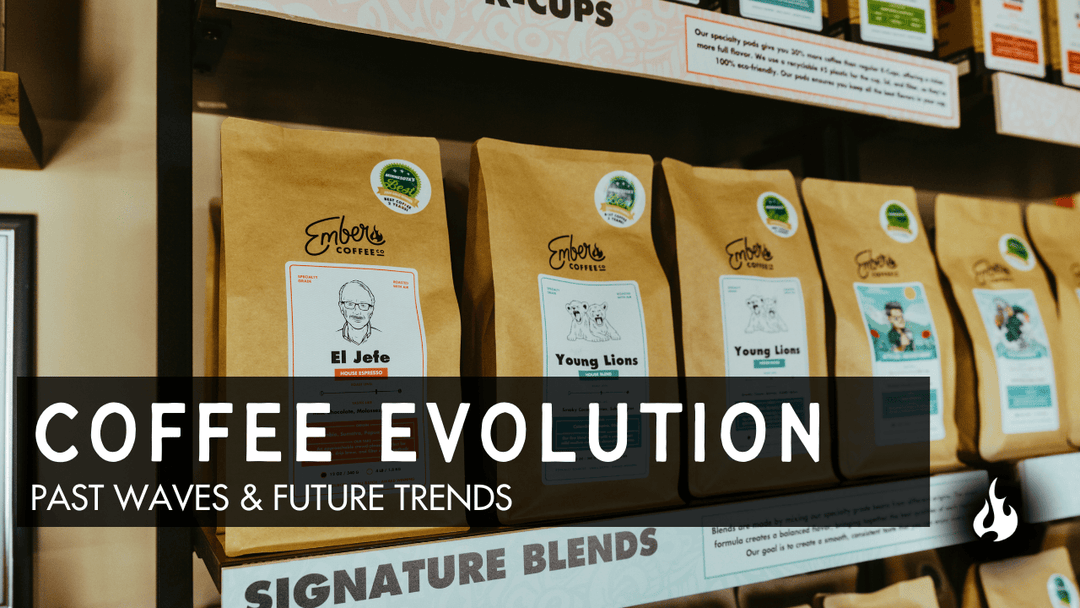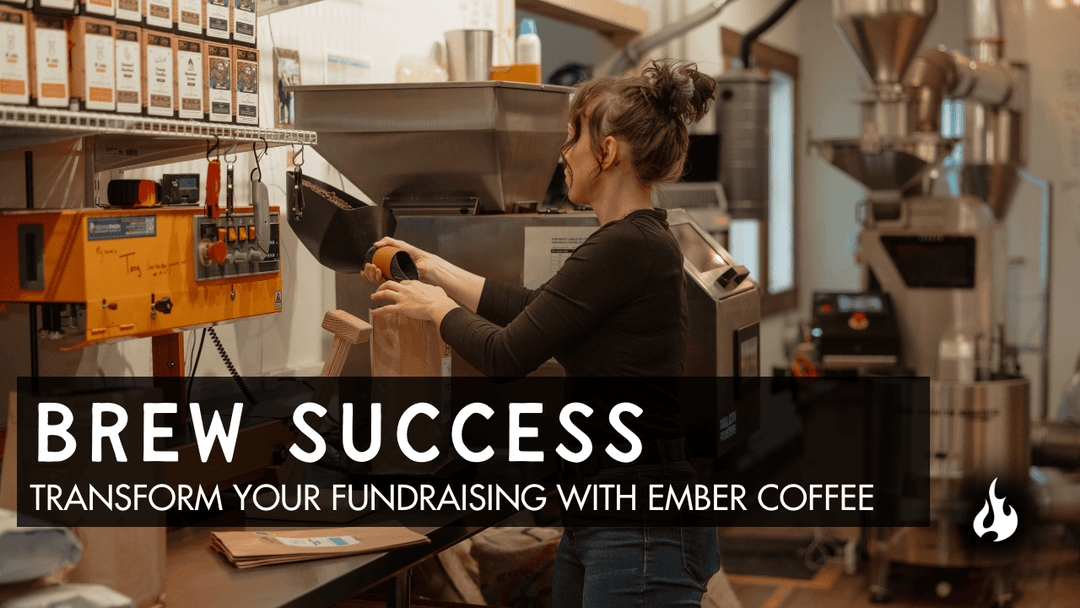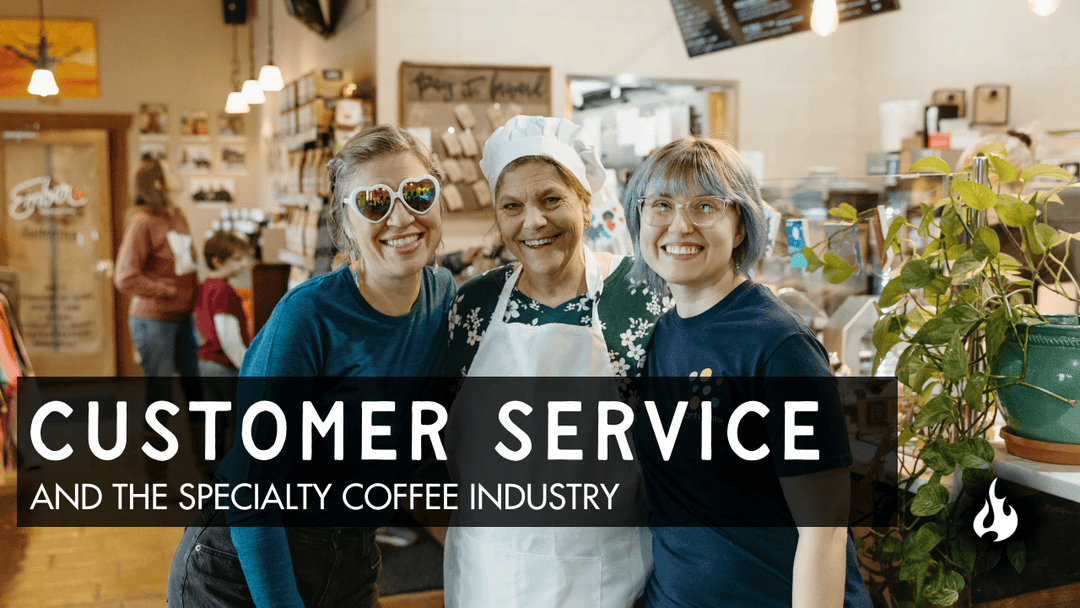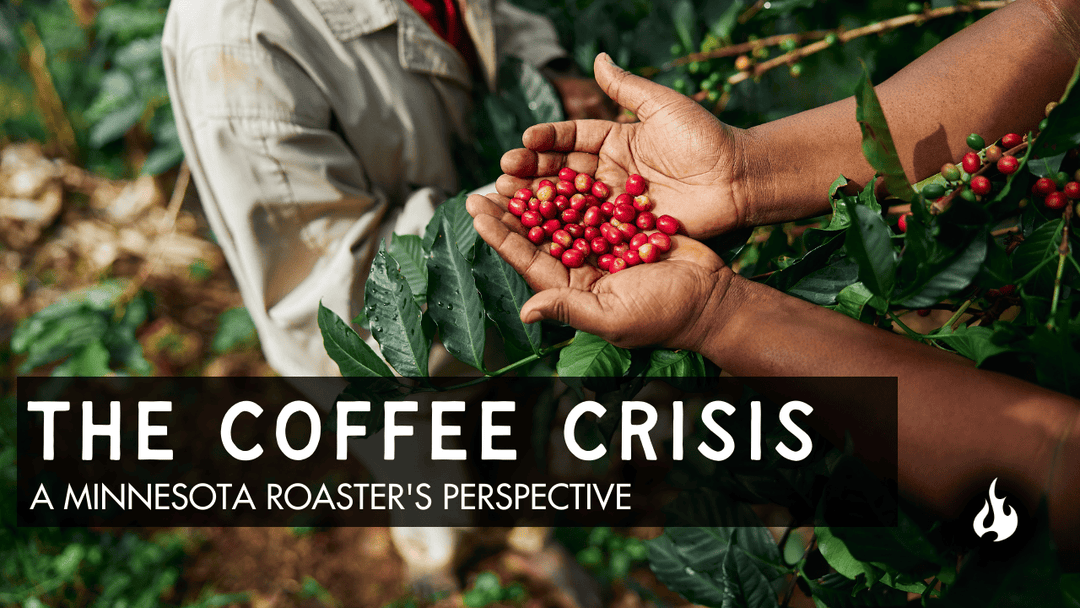Brewing Community and Connection
The Essence of Specialty Coffee
Coffee is more than just a caffeinated beverage. It’s a ritual, a conversation starter, and a bridge that connects people. At Ember Coffee, nestled in the heart of Big Lake, Minnesota, we believe in creating that connection through our locally roasted, award-winning coffee. Today, we want to delve into the importance of customer service in the specialty coffee industry, and how we strive to uphold it in spite of the growing trend towards automation.
Brewing Community and Connection
The Essence of Specialty Coffee
Coffee is more than just a caffeinated beverage. It’s a ritual, a conversation starter, and a bridge that connects people. At Ember Coffee, nestled in the heart of Big Lake, Minnesota, we believe in creating that connection through our locally roasted, award-winning coffee. Today, we want to delve into the importance of customer service in the specialty coffee industry, and how we strive to uphold it in spite of the growing trend towards automation.

The Essence of Specialty Coffee
Coffee is more than just a caffeinated beverage. It’s a ritual, a conversation starter, and a bridge that connects people. At Ember Coffee, nestled in the heart of Big Lake, Minnesota, we believe in creating that connection through our locally roasted, award-winning coffee. Today, we want to delve into the importance of customer service in the specialty coffee industry, and how we strive to uphold it in spite of the growing trend towards automation.
Since the birth of the coffee industry, customer service has been paramount. The evolution from consumers expecting their coffee to be roasted for them in the 1800s to the modern-day emphasis on freshness, quality, and craft, has transformed the way coffee shops engage with their customers. The rise of chains like Starbucks and Peet’s has put hospitality and service at the forefront of business operations, a trend that third wave and specialty coffee brands, like Ember Coffee, have embraced and built upon.
However, the increasing adoption of automation in the industry presents a challenge. While new technologies streamline service, they also risk diluting the barista culture, a vital part of the specialty coffee experience. As Starbucks' recent strategy shift towards simpler menus and premium experiences demonstrates, coffee shops can't afford to sacrifice the customer experience for efficiency.
In an article published by Perfect Daily Grind, Maxwell Colonna-Dashwood, the managing director of Colonna Coffee, and Laila Ghambari, the owner of Juniors Roasted Coffee and Guilder Café, discuss the complexities of offering exceptional customer service in the specialty coffee industry.
The Art of Customer Service in Specialty Coffee
In the world of specialty coffee, baristas are not just service providers; they are artisans. They dial in espresso, pour latte art, hand brew pour overs, and explain the nuances of extraction and flavor. This transforms coffee into more than just a product, creating an elevated sense of hospitality and enhancing the overall customer experience.
However, as the industry expands and becomes increasingly competitive, offering exceptional service and serving high-quality coffee alone is no longer enough to retain a consumer base and attract new customers. Even Starbucks, a giant in the industry, has grappled with this challenge, as their sales dipped in key markets throughout 2023 and 2024.
Specialty Coffee's Edge: Authenticity and Connection
Despite the challenges, specialty coffee shops like Ember Coffee have an edge over bigger chains. Our commitment to artisanry, craft, and ethical sourcing signals to our customers that they are not just buying a product, but an experience. We believe in fostering intimate relationships with our customers, creating a personable service that larger coffee businesses often struggle to replicate.
According to the Edelman Trust Barometer, 88% of consumers said trust is critical when deciding which brands to buy or use, with customer service a close second at 85%. This puts specialty coffee shops and roasters in a better position to navigate an increasingly challenging market.
The Double-Edged Sword of Automation
Automation has become a prominent part of the coffee industry. While it improves efficiency and resolves persistent problems such as staff training and barista shortages, it also risks eroding the artistry required to prepare and serve quality coffee. The increasing prominence of touchscreen kiosks and QR codes in restaurants and hospitality businesses might have improved efficiency, but it also risks creating a “faceless” business.
As we move towards a more automated future, it's crucial for coffee shops to strike a balance between efficiency and hospitality. The face-to-face human connection that baristas provide proves critical for specialty coffee shops to stay true to their core values of hospitality. However, it’s only one part of a much wider customer experience.
Navigating the Future of Customer Service in Specialty Coffee
The rise of tech-driven solutions for coffee shops will undoubtedly improve efficiency, consistency, and speed of service. But with a challenging year ahead, coffee shops may choose to implement automation across the board, streamlining more than just coffee preparation.
As Laila Ghambari rightly points out, "The future of customer service is not about sharing more information but investing in the experience that guests have, whether with a person or not." Digital hospitality will become more important, and customer service will continue evolving.
At Ember Coffee, we are committed to navigating these changes without losing sight of what makes us unique. We understand that our customers don't just come to us for our award-winning, locally roasted coffee. They come to us for the conversations, the connections, and the community that we foster. And no matter how the industry evolves, that is something we will always strive to provide.







